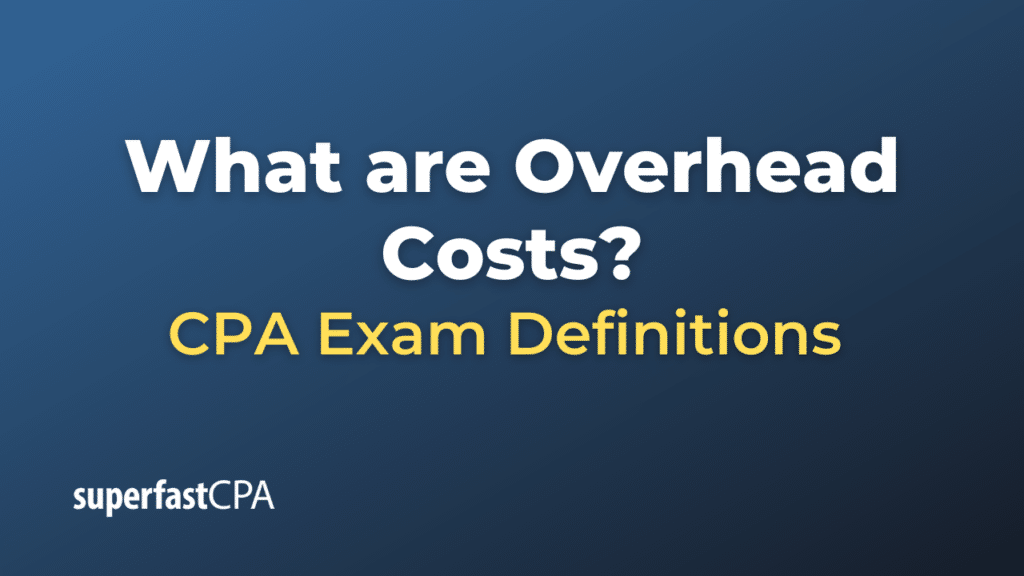Overhead Costs
Overhead costs, often referred to as “indirect costs,” are expenses not directly associated with the production of goods or services. While direct costs (like raw materials or direct labor) are tied to the creation of a specific product, overhead costs are necessary for the operation of the business as a whole.
Overhead costs can include:
- Rent or Mortgage: The cost of space to operate a business, whether it’s a retail store, an office, or a manufacturing plant.
- Utilities: Costs such as electricity, water, and gas.
- Administrative Salaries: Salaries of non-production employees like management, administrative staff, and support staff.
- Insurance: Costs for insurance policies for property, liability, etc.
- Depreciation: The reduction in value of assets (like machinery and equipment) over time.
- Maintenance and Repairs: Regular maintenance and repair costs for equipment and property.
- Office Supplies: The cost of supplies used in the general operation of a business, such as stationery, printer ink, etc.
- Advertising and Marketing: Costs associated with promoting and selling products or services.
Overhead costs are often categorized as either fixed or variable. Fixed overhead costs remain the same regardless of the level of production or services provided, such as rent or salaries. Variable overhead costs change with the level of production or services, such as utility costs or office supplies.
Understanding and managing overhead costs is crucial for businesses because these costs must be covered to keep the business running, and they are factored into the pricing of a product or service. If overhead costs are too high, it could be a sign of inefficiency and may result in decreased profitability.
Example of Overhead Costs
Let’s consider an example using a bakery, “Sweet Treats Bakery.”
Sweet Treats Bakery has several types of costs. Its direct costs include the ingredients used to make the pastries, such as flour, sugar, and butter, as well as the wages of the bakers who mix the dough and bake the pastries. These costs can be directly traced to each pastry produced.
However, Sweet Treats Bakery also has several overhead costs:
- Rent: The bakery has to pay rent for its premises. This cost is incurred whether the bakery produces one pastry or a thousand pastries.
- Utilities: The bakery has to pay for electricity and water. Some of this utility cost might be used in the production process (like electricity for the ovens), but it’s not practical to trace these costs to individual pastries.
- Administrative Salaries: Sweet Treats Bakery employs a manager to oversee the operations and a receptionist to greet customers and answer the phone. The salaries of these employees are necessary for the business but cannot be directly traced to the pastries.
- Depreciation: The bakery’s ovens and mixers lose value over time. This loss in value, or depreciation, is considered an overhead cost.
- Advertising: The bakery advertises in local media to attract more customers. These advertising costs are also overhead costs.
- Insurance: Sweet Treats Bakery has an insurance policy to protect against potential disasters like fire or flood. This is another overhead cost.
All these overhead costs are essential for the bakery’s operations, and they need to be covered by the revenues generated from selling pastries. However, they cannot be directly traced to individual pastries like the direct costs can. Therefore, the bakery needs to allocate these overhead costs to each pastry (using an appropriate method like overhead absorption) to get a full understanding of the cost of producing each pastry. This total cost can then be used for setting selling prices and making other business decisions.













